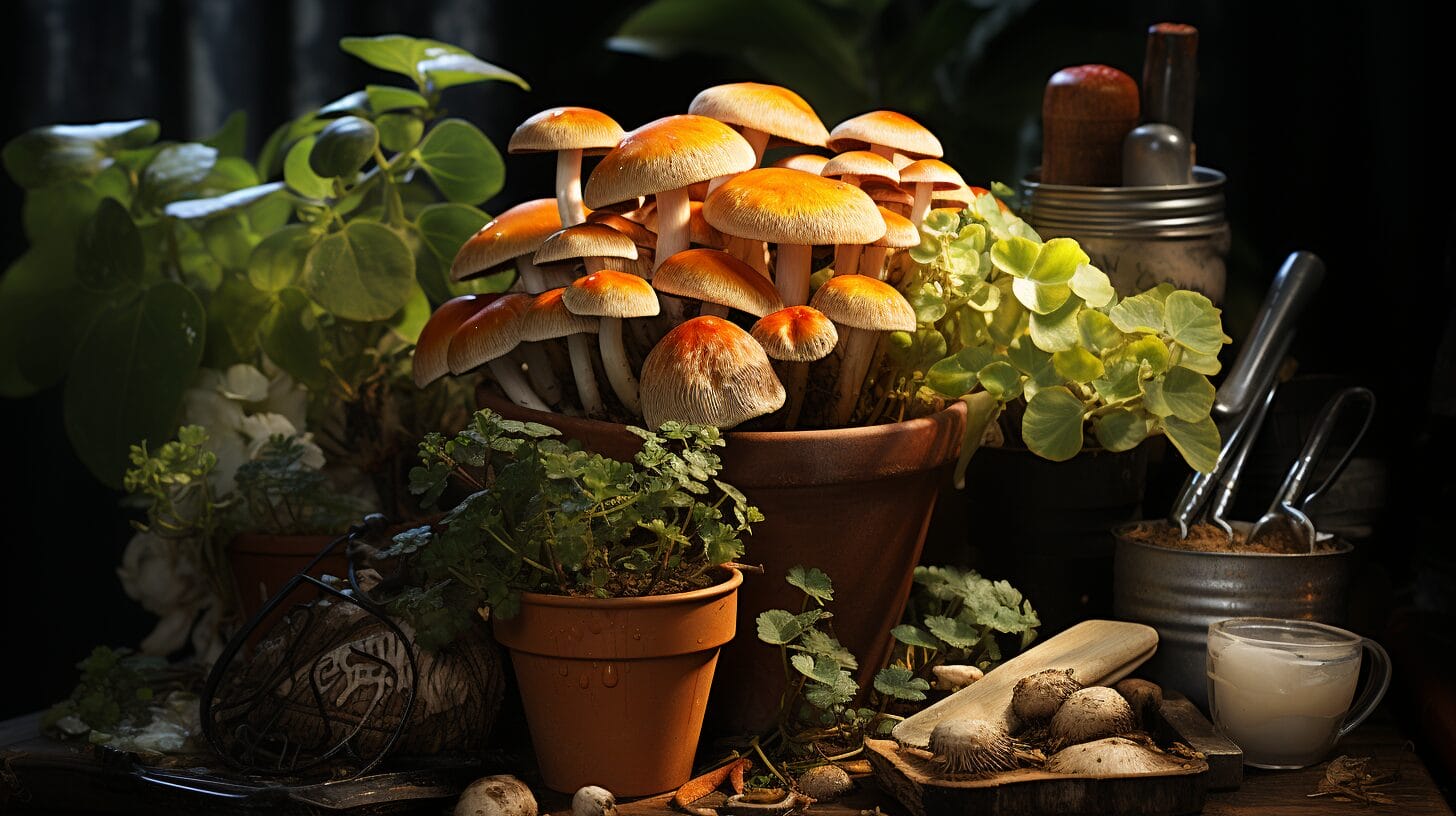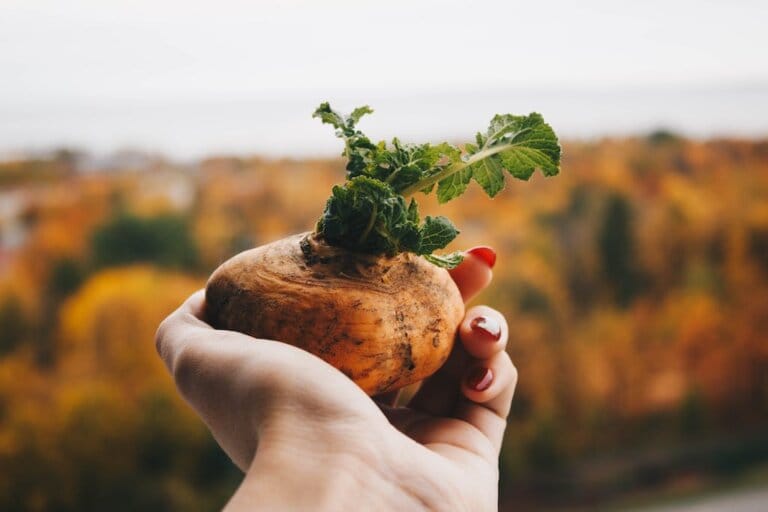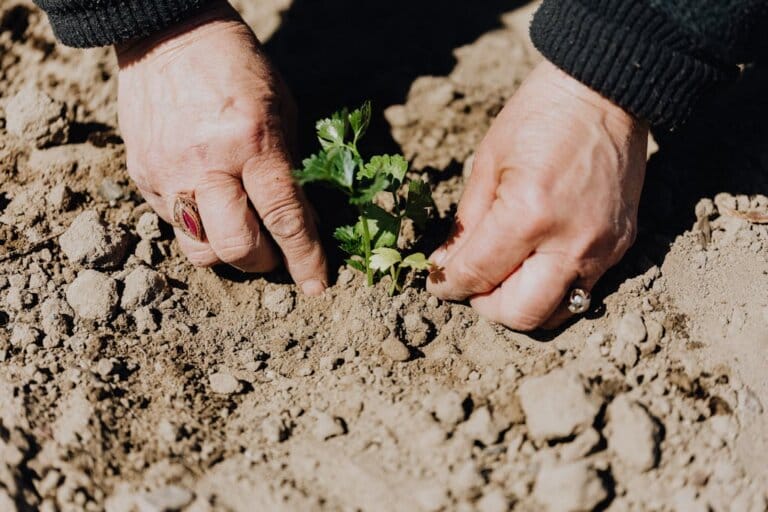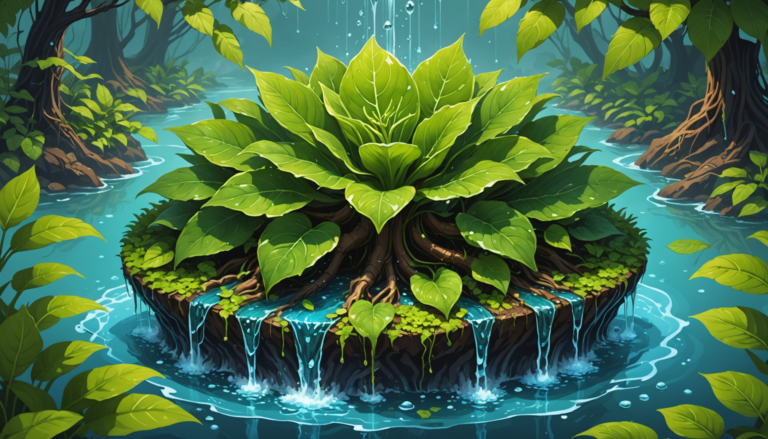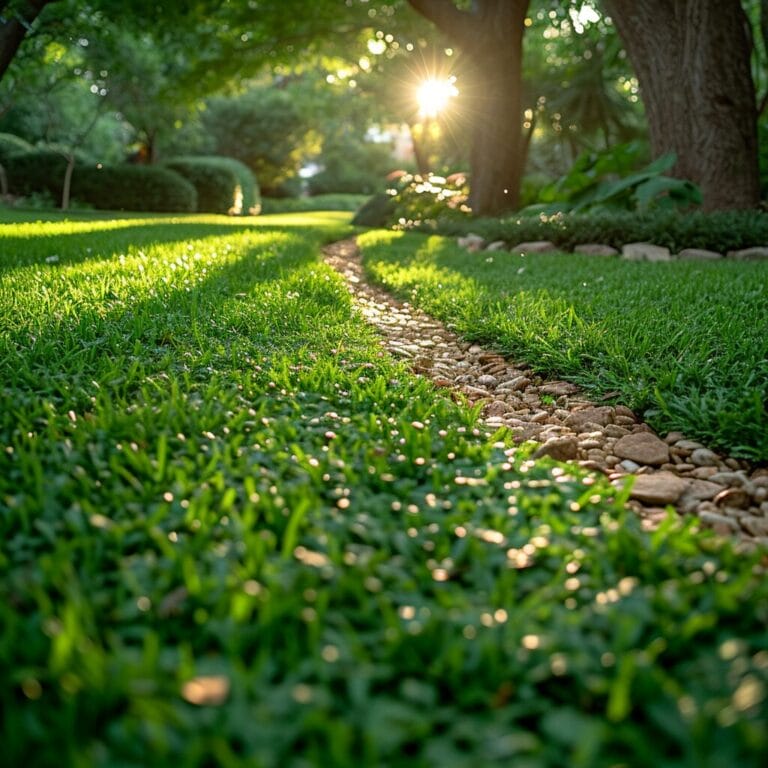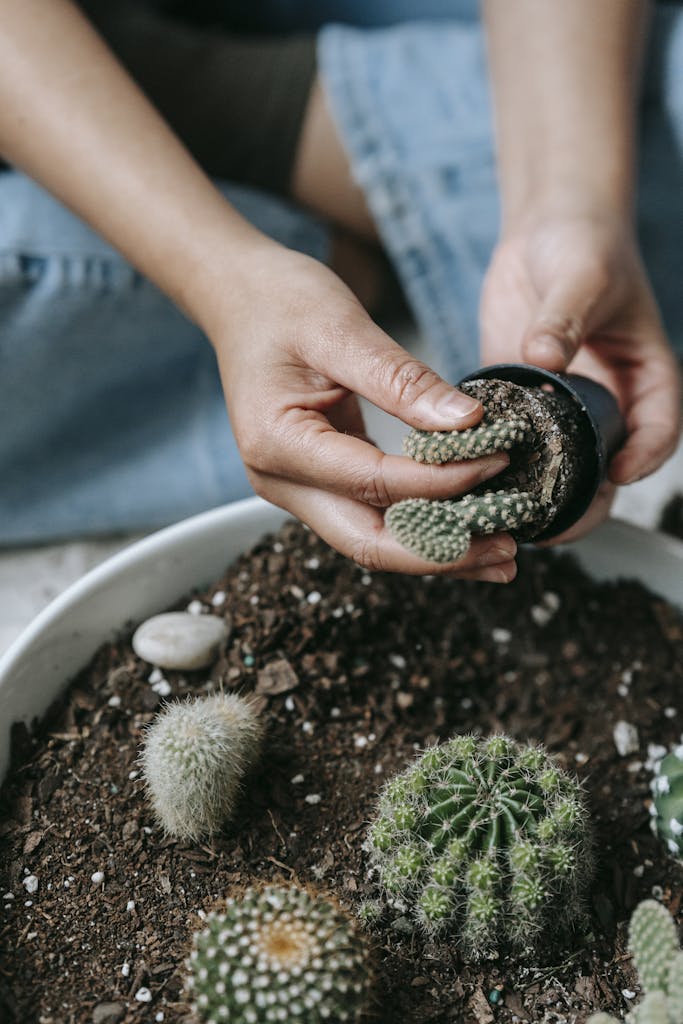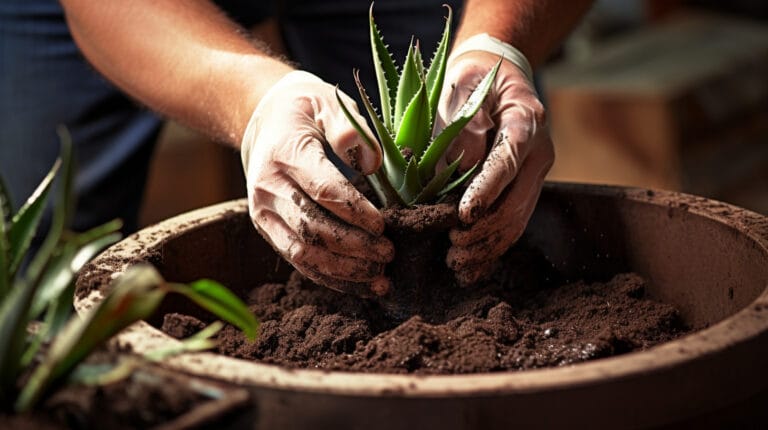Could you ever picture finding a solitary white mushroom growing in your indoor plant? You’re faced with a fungal issue, which it appears is a widespread concern in the world of interior gardening.
These mushrooms, while not a danger signal, should not be ignored. This guide will show you how to not only remove these uninvited guests but also prevent their return.
By understanding the delicate ecosystem within your planter and how a slight imbalance can invite mushroom growth, you’ll be able to create an environment that discourages their occupancy while ensuring the prosperity of your potted plant.
Key Takeaways
- White mushrooms in houseplant soil indicate excess moisture and organic matter.
- Overwatering, poor drainage, and contaminated potting soil can contribute to mushroom growth.
- White mushrooms can be a sign of a healthy soil ecosystem but may indicate overly moist conditions.
- To address the issue, remove mushrooms, repot with fresh soil, let the soil dry out more between waterings, and introduce beneficial microorganisms or natural fungicides.
Understanding White Mushrooms: The Common Mushroom Growing in Houseplant Soil
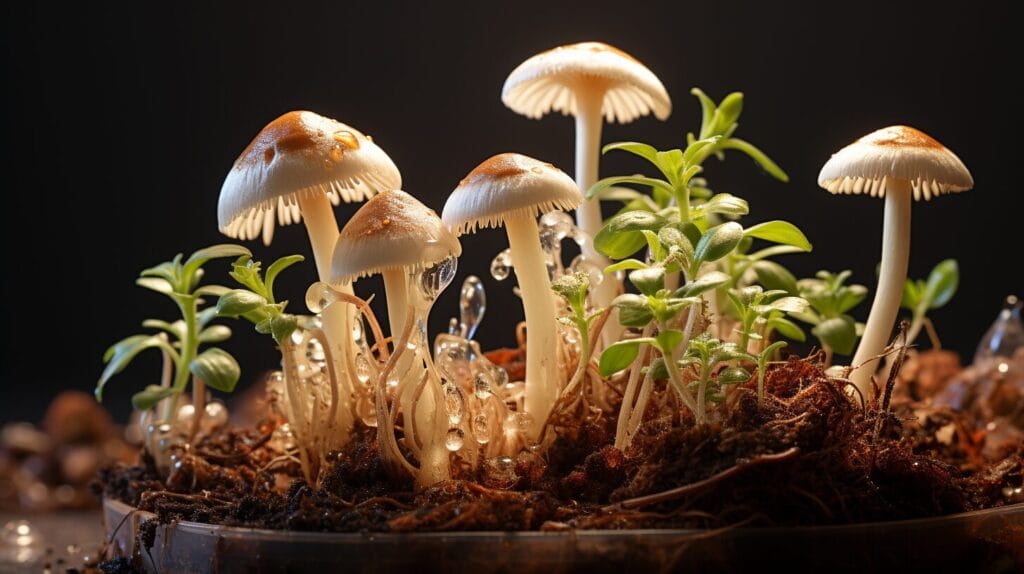
White mushrooms, often found sprouting in houseplant soil, indicate excess moisture and organic matter. Although typically harmless to the plant, they signal the need to adjust your watering habits.
These mushrooms thrive in damp conditions and feed off organic matter like decaying leaves or overly rich-soil.
Identify these white mushrooms by their small, white to off-white caps, sometimes slightly fuzzy, with thin stems, often sprouting in clusters. To discourage their growth, let the soil dry out more between waterings, as overwatering can lead to other issues such as root rot.
Identifying the Causes: Why Mushrooms Appear in Your Houseplants
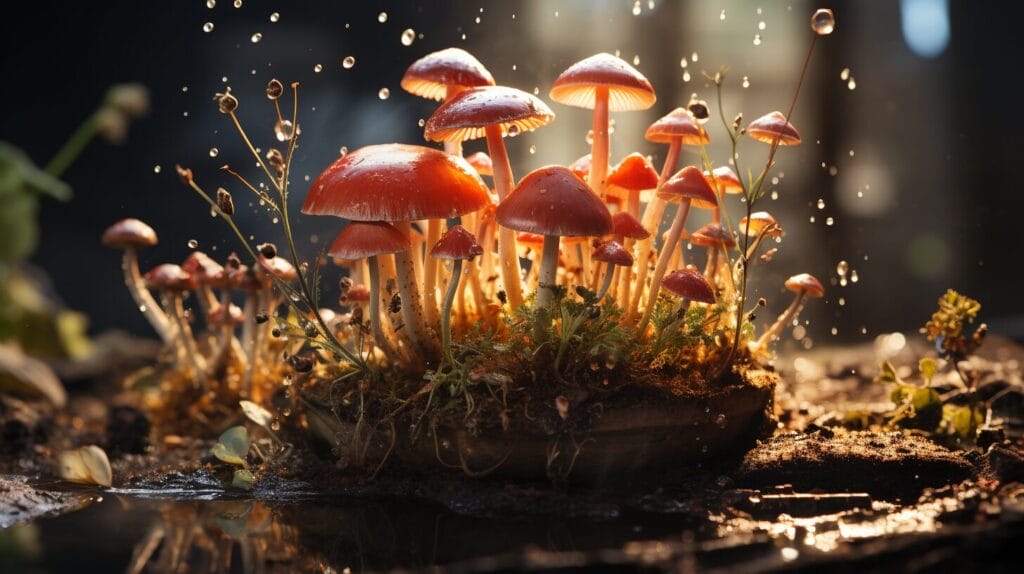
The reasons behind mushrooms appearing in houseplants often lie in overwatering and poor drainage. Excess water creates a habitat where mushrooms thrive. Sometimes, contaminated potting soil may already contain mushroom spores.
Organic matter in soil feeds mushrooms, and excessive moisture accelerates its breakdown, offering a feast for fungi.
To resolve this, assess your watering habits, check potting soil quality, and ensure proper drainage.
Assessing the Repercussions: Are White Mushrooms Poisonous?
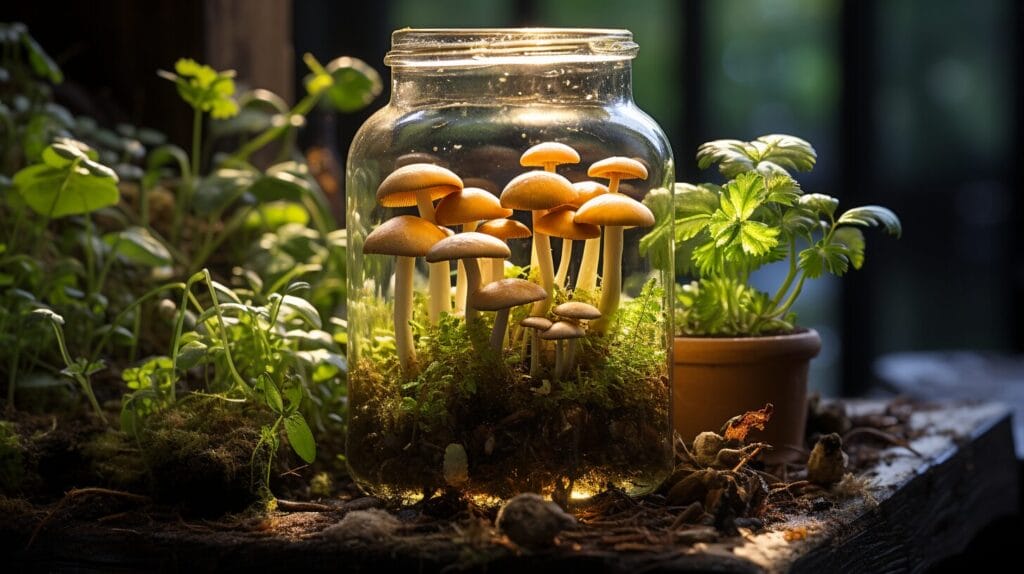
White mushrooms can be a sign of a healthy soil ecosystem, yet their presence may indicate overly moist conditions, potentially leading to root rot.
Most white mushrooms aren’t poisonous to plants, but they could be a warning sign. Some mushrooms are toxic to humans and pets, making their removal a wise precaution.
To address this, reduce watering, repot with fresh soil, and consider using a fungicide for balance.
Addressing the Problem: How to Get Rid of the Mushrooms in Your Potted Plants
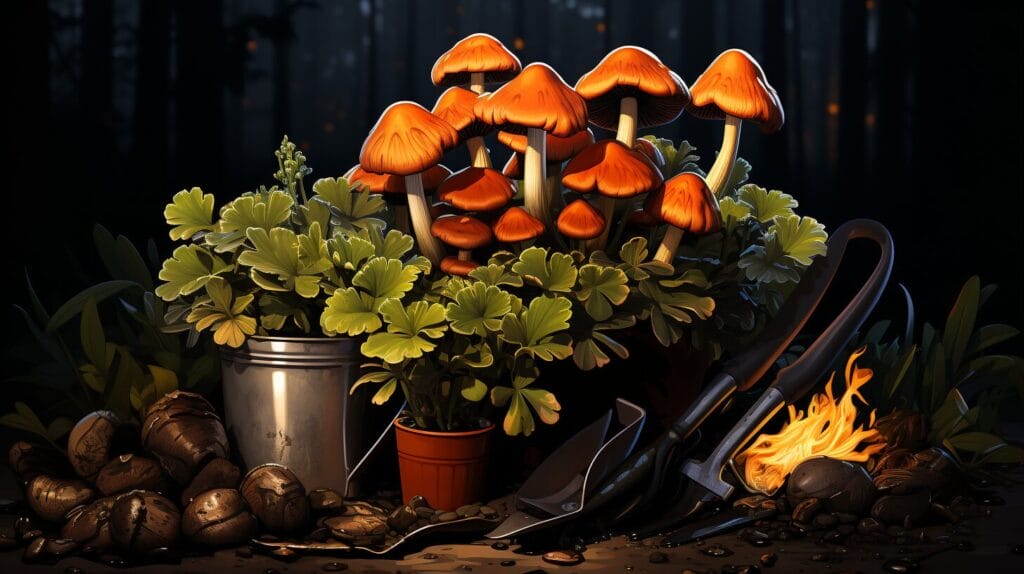
To eliminate white mushrooms:
- Manual Method: Remove mushrooms and the top layer of soil where mycelium resides.
- If persistent, repot the plant with fresh soil and clean the pot to remove spores.
- Natural Solutions: Let the soil dry between waterings and introduce beneficial microorganisms or natural fungicides like cinnamon or chamomile tea.
- Professional Intervention: For recurring issues, seek advice from a nursery or extension service.
Preventive Measures: How to Prevent Mushrooms from Growing in Your Houseplant Soil Again
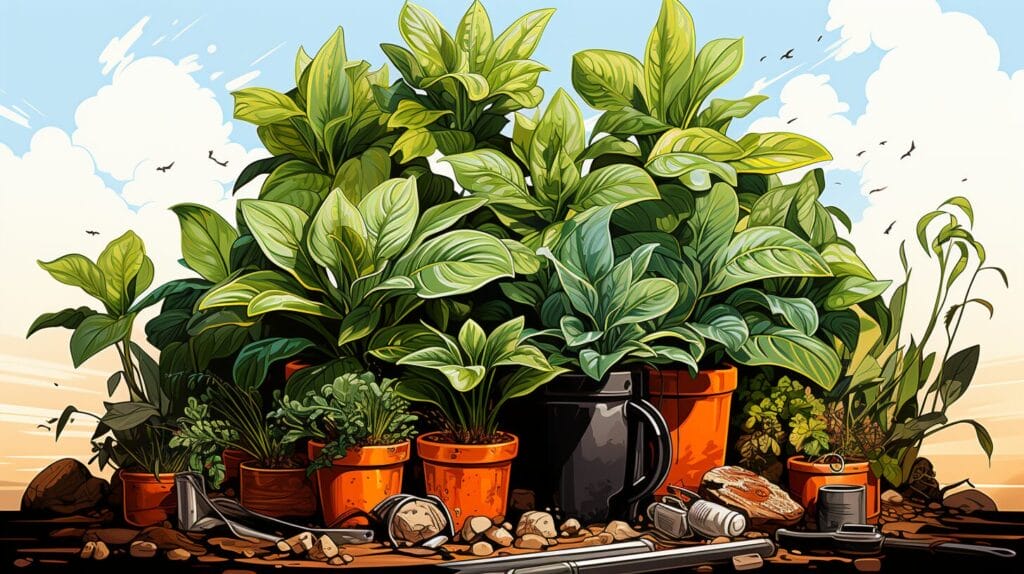
Ensure your potting mix is well-suited for your plant’s needs, with good drainage to prevent fungi. Check soil moisture before watering and clean plant pots regularly to remove any potential food sources for mushrooms.
Can Wandering Jew plants attract and feed white mushrooms in potted plants?
Yes, the wandering jew plant discovery is true. Wandering Jew plants can indeed attract and feed white mushrooms in potted plants. The organic matter in the soil and the warm, humid conditions in a potted plant environment make it an ideal breeding ground for various types of mushrooms, including the white ones.
Conclusion
By addressing the white mushrooms, you ensure your plant’s health remains in check. Maintain soil balance, and practice vigilance and proper care to defend against future fungal issues.
Embrace your role as the guardian of your green haven, and enjoy your flourishing, fungus-free plants.
Frequently Asked Questions
What causes mushrooms to grow in my houseplant’s pot?
The appearance of mushrooms in your houseplant’s soil is usually a sign of over-watering. Mushrooms typically thrive in moist environments. If you see mushrooms growing in your houseplants, it indicates that the soil is retaining too much moisture, creating an ideal environment for mushrooms to grow.
How to get rid of mushrooms growing in my houseplants?
The best way to get rid of mushrooms in houseplants is to alter the conditions that promote their growth. First, remove the mushrooms as soon as you find them growing. Second, reduce your watering schedule, and consider moving the plant to a well-ventilated area to limit moisture. Lastly, repotting the plant using fresh potting soil can also help.
Can I Stop The White Mushroom Growing in Potted Plants?
To prevent mushrooms from growing in your houseplant’s soil, avoid overwatering the plant and ensure the soil drains well. Again, the presence of mushrooms usually indicates an over-moist soil condition, so adjusting your watering habits can help prevent future growth.
What do I do when I find mushrooms in my houseplant pots?
If you find mushrooms growing in your houseplant pots, remove them immediately. After removing the visible mushrooms, be sure to let the soil dry out before watering your plant again. You may also want to inspect for any other fungal growth in the pot or on the plant itself.
Are yellow houseplant mushrooms harmful to humans?
Yellow houseplant mushrooms are generally considered non-toxic but they’re not edible. If ingested, they can cause stomach discomfort. It’s always a good practice to keep them out of reach of children and pets.

